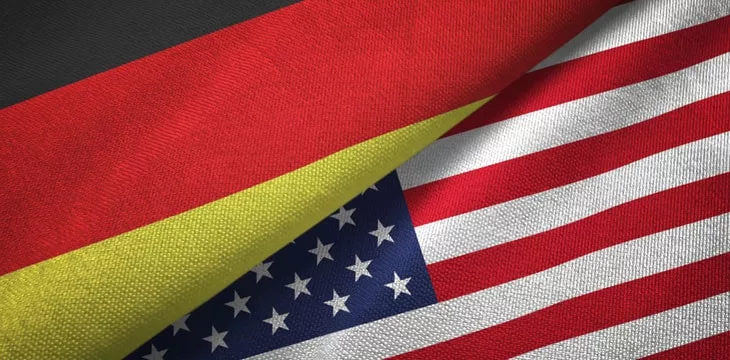|
Getting your Trinity Audio player ready...
|
Germany is the latest country to throw its weight behind artificial intelligence (AI) development, with plans to double funding for the emerging sector in the coming years.
Research Minister Bettina Stark-Watzinger confirmed the country’s AI ambitions, revealing the government’s pledge to increase public funding by $1 billion within two years. Germany currently suffers from a lack of AI talent and local projects compared to China and the United States.
Stark-Watzinger said they will use the injected funds to set up 150 university labs for AI research and development nationwide.
The ambitious plan will also include upgrading existing data centers that will offer AI researchers access to diverse data sets to train their models.
Germany’s 100% jump in funding AI still falls short of the $3.3 billion spent by the U.S. government in AI research in 2022. Private AI research funding in the U.S. surpassed $47 billion. In comparison, China’s corporate entities splurged $13 billion, leaving Germany with a steep mountain to climb.
Despite the stark difference in funding figures, Stark-Watzinger believes that Germany can still compete favorably in the ecosystem. The minister hinges on a consumer-centric AI regulatory regime that places private data protection ahead of AI developers’ needs.
“We have AI that is explainable, trustworthy, and transparent,” said Stark-Watzinger. “That’s a competitive advantage. Simpler regulations would promote private research spending.”
Germany is joining forces with other European Union nations to draft new regulations with a blanket ban on predictive policing systems using AI. The incoming rules advocate for clear labeling of AI-generated content and an additional requirement for testing in regulatory sandboxes before a public rollout.
Germany has only a handful of AI tech firms in the city, placing the country in ninth place. However, with new funding and proper regulations, Stark-Watzinger says Germany would attract the leading industry players, deepen the talent pool, and trigger local AI innovation.
“Germany and Europe must lead in artificial intelligence,” said former German Chancellor Angela Merkel. “Our prosperity hinges on it, as does upholding our European values and safeguarding privacy in this digital age.”
A grave danger lurking in the shadows
Amid the AI push, several bodies have warned of the risks posed by integrating AI into key sectors of the economy. An IBM report highlighted that over one billion persons, representing 40% of the global workforce, will need new job skills to avoid being replaced by AI.
In Web3, there are rising concerns that using generative AI platforms like ChatGPT could replace competent contract auditors with customer service jobs facing a similar risk. The United Nations says AI, if left unchecked, could pose the same risks as nuclear weapons as countries embark on a heated arms race.
In order for artificial intelligence (AI) to work right within the law and thrive in the face of growing challenges, it needs to integrate an enterprise blockchain system that ensures data input quality and ownership—allowing it to keep data safe while also guaranteeing the immutability of data. Check out CoinGeek’s coverage on this emerging tech to learn more why Enterprise blockchain will be the backbone of AI.
Watch: Futureproof Tech Summit 2024: Exploring new AI-blockchain business models

 07-05-2025
07-05-2025 





